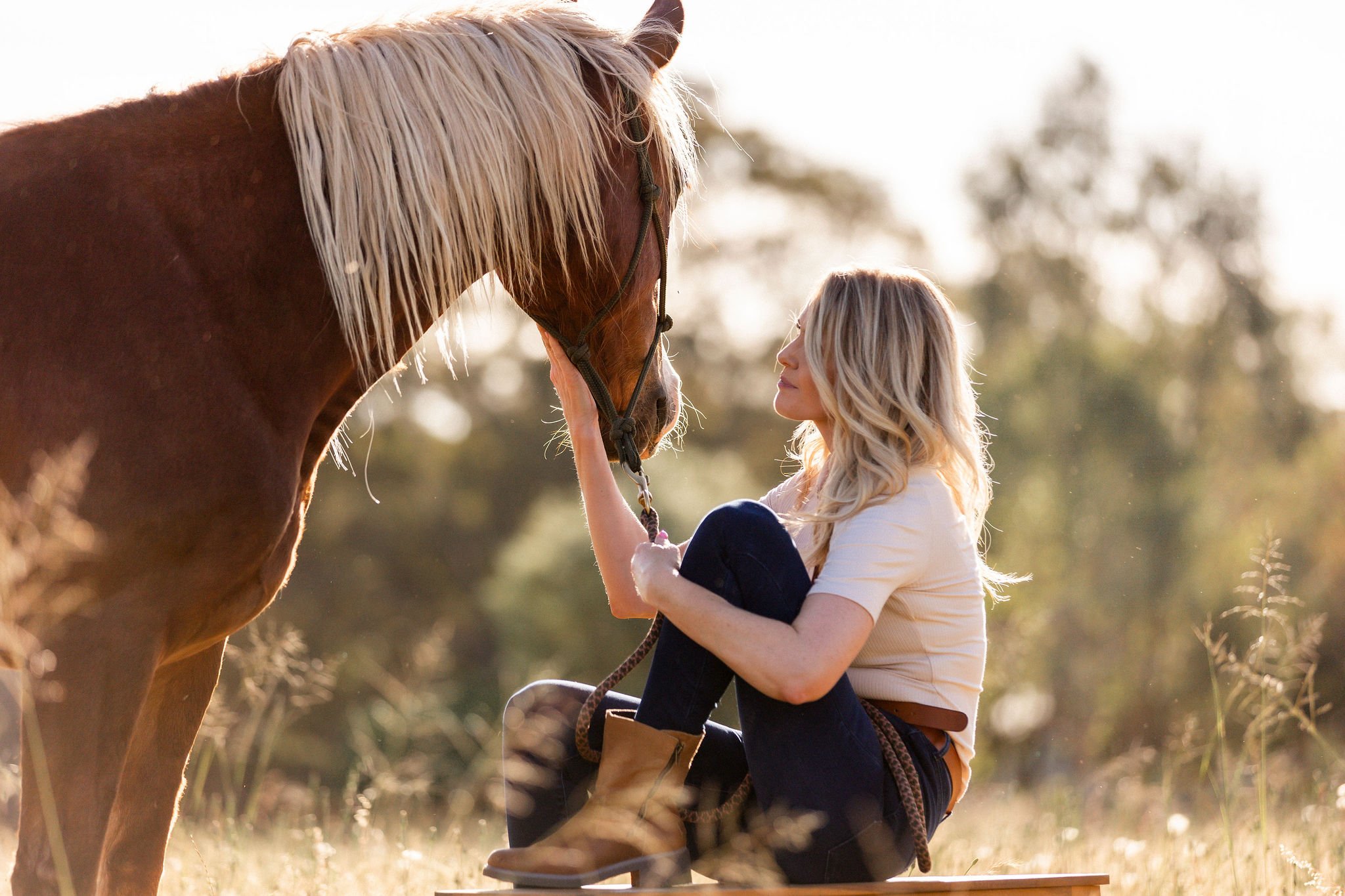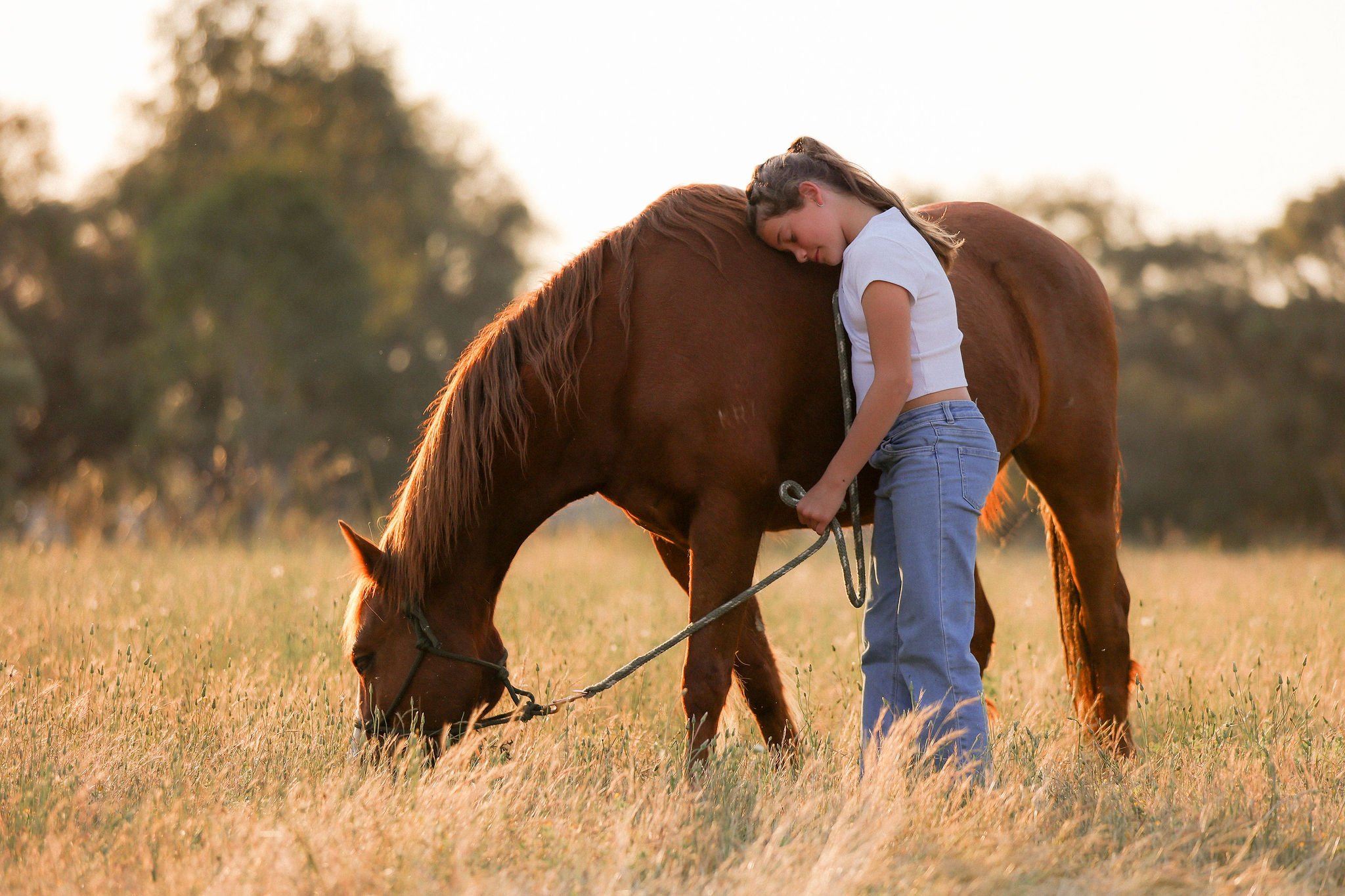
Join us in our mission to make a positive impact on the lives of individuals and communities through the power of the horse-human connection.
The Equine Assisted Wellbeing Institute was founded with the purpose of empowering individuals who aspire to enter the fast-growing and highly rewarding field of equine assisted therapy. Our primary aim is to offer comprehensive education and support to those interested in pursuing a meaningful career with horses.
Equine assisted therapy has been gaining recognition as a highly effective therapeutic option for various physical, emotional, and mental health conditions. Contemporary clinical research indicates that close proximity to horses influences human brainwave patterns, suggesting a significant positive impact on emotional and psychological states. With the increasing demand for equine therapy services, there is a growing need for qualified professionals who can provide these services.
At the Equine Assisted Wellbeing Institute, we provide a range of educational programs, workshops, and resources, including our internationally recognised certification course, available both in-person and online. Designed to equip aspiring practitioners with essential skills and knowledge, our training combines expert-led tutorials with practical skills to ensure a high-quality educational experience.
We are dedicated to promoting the benefits of equine assisted therapy and contributing to the growth and development of the industry.
What is Equine Assisted Wellbeing?
Equine Assisted Wellbeing is a distinct, evidence-based approach to equine-assisted therapy founded by principal Felicity Rideout that leverages the unique attributes of horses to support mental health and overall wellbeing.
Find out how you can join the movement and make a difference by sharing your love of horses!
“The horse. Here is nobility without conceit, friendship without envy, beauty without vanity. A willing servant yet never a slave.”
— R. Duncan
What are the benefits?
The Equine Assisted Wellbeing Institute employs an evidence-based, person-centred approach that prioritises client autonomy and empowerment.
At its core is the unique bond between humans and horses, promoting growth in areas such as self-awareness, emotional regulation, patience, compassion, and responsibility. This process helps participants gain a deeper understanding of themselves and their relationships with others.
Discover how Equine Assisted Wellbeing is making a difference!
-
When we started Equine Assisted Wellbeing, my son’s anxiety would often make him very scared to the point of shrieking and running whenever he saw a dog or any larger animal. He was very scared of horses. After a few months of attending weekly sessions he has reduced anxiety and built on his ability for joint attention. He is also now able to focus more and after watching the calm presence of the horses during grooming and other activities, has learnt to remain calm during daily living tasks such as cutting his nails. Thank you for your amazing work.
-L.K Hillarys Western Australia
-
Since starting Equine Assisted Wellbeing sessions I have become confident within myself to go about my general day-to-day routine. People who know me have remarked how relaxed I seem. I feel I can tackle the world without feeling as overwhelmed as I had been prior to attending equine therapy sessions. Horses don’t hold a grudge; they live in the moment. Their angry moments pass quickly. That has made a difference too. I’ve picked up the horses “no” and that empowers me to recognise that, I feel I’ve built a trust with the horses.
-Natalie H Wanneroo Western Australia
The practice of self-regulation occurs within relationships.
Stuart Shanker, Ph.D.
Equine Assisted Wellbeing not only enhances the participant's relationship with the horse but also facilitates the vital human-human relationship. These connections assume a pivotal role in the development of social and emotional regulation, communication, and self-confidence, while also serving as a safeguard against the consequences of adverse childhood experiences. This two-fold benefit aligns with the research that highlights the importance of supportive, trusted adult relationships outside the family circle.

